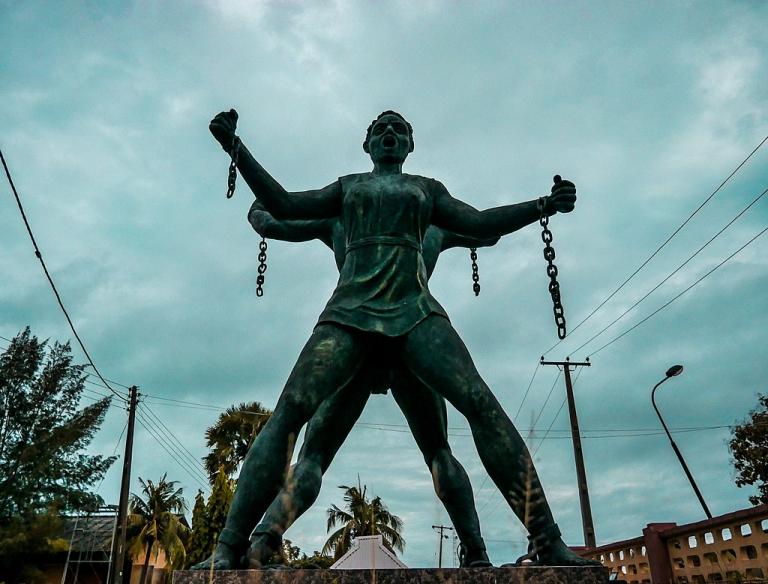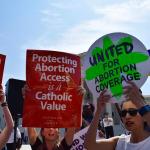The New York Times has quietly backed off of its claim that August, 1619, when the first slaves were brought to Virginia–not July 4, 1776–is America’s “true founding.”
On August 14, 2019, the newspaper marked the 400th anniversary of that event by publishing the 1619 Project, a series of articles that aim, in its words, “to reframe the country’s history, understanding 1619 as our true founding and placing the consequences of slavery and the contributions of black Americans at the very center of our national narrative.”
The series, under the direction of lead author Nikole Hannah-Jones–who won a Pulitzer Prize for the project–maintained that slavery and racism are at the essence of America. The American Revolution, according to the 1619 Project, was fought to preserve slavery, which is also the basis of American capitalism. The South, in effect, won the Civil War, and Abraham Lincoln was a white supremacist. (For more of the response from historians, go here and here.)
Historians savaged the project, showing that these claims are simply untrue. Liberal historians joined conservative historians in debunking the project. It turns out, the New York Times ignored the report of its own fact-checker! (The links in the preceding paragraph will take you to the historians’ critique of what the 1619 Project said about each topic.)
What has been most interesting to me is that hard-core Marxists are also eviscerating the 1619 Project. The World Socialist Web Site, sponsored by the International Committee of the Fourth International, published a series of exposés of the series, concluding that
The 1619 Project was never about historical clarification. As the WSWS warned in September 2019, the “1619 Project is one component of a deliberate effort to inject racial politics into the heart of the 2020 elections and foment divisions among the working class.”. . .
The fraud perpetrated by the Times has already had serious political consequences. As the WSWS warned, the 1619 Project has been an enormous gift to Donald Trump. On September 17, Constitution Day, Trump delivered a speech at the National Archives Museum in which he obscenely postured as a defender of the Declaration of Independence and Constitution against the “radical left,” specifically naming the 1619 Project. . . .
The falsification of history always serves the interests of reactionary political forces. By repudiating and denigrating the American Revolution and Civil War, the New York Times has provided an opportunity for Trump to fraudulently posture as a defender of the great democratic legacy of America’s revolutions in the interests of his neo-fascist politics.
This leftwing critique of a leftwing project demonstrates the ideological conflict between Marxism and Post-Marxism, critical theory and critical race theory. True Marxists insist that history is about class struggle, not racial struggle, or struggle between the sexes, or the struggle of gays, or other contending groups that claim a history of being oppressed by other groups. Marxists recognize these other kinds of oppression but insist that they are symptoms of the larger struggle between socio-economic classes.
And in looking at history through that lens, the American Revolution and the Civil War were good things. Marxists see them as bourgeois revolutions (that is, revolutions of the middle class), which overthrew the feudal system (the aristocracy of Kings and southern planters). They also see the Reformation and the French Revolution in those terms.
Next the bourgeois (the middle class) must be overthrown by the proletariat (the working class). But the earlier revolutions were absolutely necessary.
Marxists are also committed to class solidarity (“workers of the world, unite!”) as opposed to the Post-Marxist notion that pits groups against each other, which is intrinsically disunifying. Marxists contend that racism was fomented by capitalists to keep working class blacks and working class whites from uniting against their common enemy: the capitalist land, property, and factory owners. Efforts like the 1619 Project continue to “foment division among the working class.” Marxists are also suspicious of feminism, the LGBT movement, and woke capitalism–not that they do not agree with their principles, but because they are led by the bourgeoisie, share middle class values such as freedom and individuality, and inhibit class consciousness by setting working people against each other.
As the Left gains more and more influence and political power in the United States, it will be interesting to see which leftwing faction prevails.
In the meantime, the New York Times has dropped its claim that 1619 is America’s “true founding.” The introduction to the series now reads that it “aims to reframe the country’s history by placing the consequences of slavery and the contributions of black Americans at the very center of our national narrative.” Note the omission of “understanding 1619 as our true founding.”
The Times did not announce this correction, as journalistic ethics demands. Rather, as Phillip W. Magness says in his provocative essay about the controversy, they dealt with their mistake in the way Big Brother rewrote history in the novel 1984, by dropping it down the “memory hole,” as if the facts now out of favor never existed.
That, of course, is the way of “cancel culture,” which purges history of whatever offends it, leaving history all clean, bright, and in its favor.
I would add that the jargon of “reframing,” “narrative,” and “re-centering” is the language of postmodern constructivism–the view that there is no objective truth, only “constructions” to advance a power agenda, which in itself signals that the account is going to be made-up.
Nevertheless, the 1619 Project is now taught in grade schools and universities, its other claims unretracted, and the phrase “our true founding” still repeated as its thesis, even though that assertion can no longer be found in the online original.
Illustration: “Freedom from Slavery” by Solasly / CC BY-SA (https://creativecommons.org/licenses/by-sa/4.0) via Wikimedia Commons













